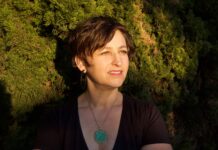Note: I have used the word ‘psychosis’ in this blog. While this has medical implications and does not capture the experience of everyone with unusual beliefs and experiences, it is one I use to describe my own experience.
I spent my early years feeling powerless and insignificant. Something shifted after a major adult trauma and I began experiencing ‘psychosis’. I believed I was an important religious figure (St Michael) on a mission to save the world from impending destruction. This made me feel incredibly powerful and significant.
The gift of that experience lies in understanding that an important part of me survived and held on to the truth of my power and importance despite the trauma I had experienced. The sadness was this being met with fear, dismissal and violence in the psychiatric system. For me, the ‘delusions’ were not symptoms of grandiosity or even symptoms of pathology. They were signs and expressions of my own hope and resilience. I felt truly alive for the first time in my life.
“I have to shun and constrain her with psychiatric drugs to function in a world that is far crazier than she is”
I love ‘mad’ me and value the lessons she has taught me and the trauma she has saved me from. I love her creativity, assertiveness and passion for life. I grieve for ‘mad’ me during my long periods of stability and resent the fact that I have to shun and constrain her with psychiatric drugs to function in a world that is far crazier than she is. Every time I have been sectioned, my experience of reality has been challenged forcefully. Having my reality, freedom and bodily autonomy stripped away felt like being gaslighted, kidnapped and continuously assaulted ‘for my own good’.
The people I have met working in the system are mostly kind and compassionate and fostered in me sincere respect for the work that they do. I believe we have a duty to care for people who present a risk to themselves or other people. The things that were done to me were done with the best of intentions. They were still done to me rather than with me. I regained my sanity but mourn for what I lost in the process.
I identify as a psychiatric survivor because I am proud of what I overcame and endured in the system and not because I am ‘anti-psychiatry’. I believe in psychiatry and believe that its well-intentioned core will one day translate these intentions into consistently compassionate treatment and care. I was once asked by a very nice psychiatrist how I managed to believe fantastical things without a basis in reality. The answer I would give now comes easily. Unless you are a lucid dreamer or have no experience of dreams, people believe fantastical things every night. Is it so hard to understand someone whose beliefs diverge from reality in their waking hours?
Through my experience, I believe there is an empathy gap in understanding the experience we call ‘psychosis’. Reading back over my clinical notes, I was deeply saddened to read that I was verbally abusive and destructive in the hospital. I am usually a calm person during my recovery periods and felt sad for the overworked staff who had to contend with my challenging behaviour. As well as feeling this sadness, I felt anger. Anger that my feelings of kidnap, assault and gaslighting were not captured on the notes at all. No therapy was ever offered to support me in processing the traumatic experience of sectioning. I was vocal enough in my despair at what I was experiencing, but because it was done for the greater good, I was completely silenced.
“How can you treat someone without understanding or acknowledging their identity or show curiosity”
I am not writing this to complain or attack the system. I am writing this in the hope that the empathy gap can be bridged somehow. I feel that there needs to be more curiosity about the ‘psychotic’ condition. Nobody ever asked me in the hospital why I believed I was St Michael. This was my reality at the time and was a major part of my identity. How can you treat someone without understanding or acknowledging their identity or show curiosity into its origin? And how can you care for someone you don’t get to know? My first episode was triggered by a traumatic incident. After coming out of the hospital, my ‘psychosis’ began to dissipate and my experience of feeling alive began to disappear along with it. In this way, I lost an identity that had protected, nourished and helped me heal after experiencing trauma. St Michael had far more power than I did when I experienced the traumatic incident. My ‘psychotic’ self protected me and it took a long time to feel gratitude rather than shame for what she had given me at the time.
Even if the system lacked curiosity, I certainly didn’t. I began to read article after article on the experiences we call ‘psychosis’ and their causes. I am not a doctor, so I didn’t understand the dopamine hypothesis. What I was looking for what permission to care for a part of myself that had saved me. I eventually read “The Divided Self” by R.D Laing. I didn’t understand most of it and still don’t, but it gave me this permission. Laing showed curiosity and compassion and his words encouraged me to begin to explore my own experiences. I applied for my medical notes and tried, in vain, to understand what my ‘psychotic’ self was trying to tell me so forcefully. I knew I needed help, so I reached out to the Philadelphia Association and was matched with a therapist. I found it hard to open up in therapy and I was cagey, evasive and often completely silent. I left therapy feeling like I had gained nothing from it, despite the skilled and compassionate efforts of my therapist at the time. Reflecting back, I remember one thing he said that stuck with me. He said people should be allowed to have human experiences. Not only had I gained permission to care for ‘mad’ me and allow her to live, but I also had that permission given by someone I respected and cared for in real life. I now work as a support worker in a charity that values lived experience and person-centred care. Life is getting better for me and I sincerely hope that the systems I rely on start getting better too.




Thank you for sharing your story and your experiences of altered states of reality. I navigate in and out of altered states of reality / consciousness on a daily basis…. but with fine tuned awareness of it happening. This started in the years following a single episode Psychosis which acted as a Shamanic awakening. It feels like I enter a dreamlike, storytelling state that I have learnt has a mix of roles in my own life path, holistic health and healing. It has definitely enhanced my overall quality of life, and improvements in health and wellbeing seem to have followed. It has taken time though to be able to understand this and be able to then return into everyday life.
I agree – I do not feel that most mental health professionals including Psychiatrists mean to cause harm. Unfortunately many do – and modernisation of the entire system is desperately needed to challenge current ways of thinking, current approaches and engrained behaviours. Ultimately this would give the best chance of more humane treatment and better outcomes.
Again, thank you for sharing your story. It resonated with me.
Thank you you much Sham for your kind words and thank you for sharing your thoughts. It is lovely to hear your account and what you gained from your experiences.
I agree with the need for modernisation and a shift in attitudes and practise. The narrative of sickness and illness does not resonate with me and I know I am not alone in this.
Wishing you the very best and thank you again for your reflections,
Anonymous